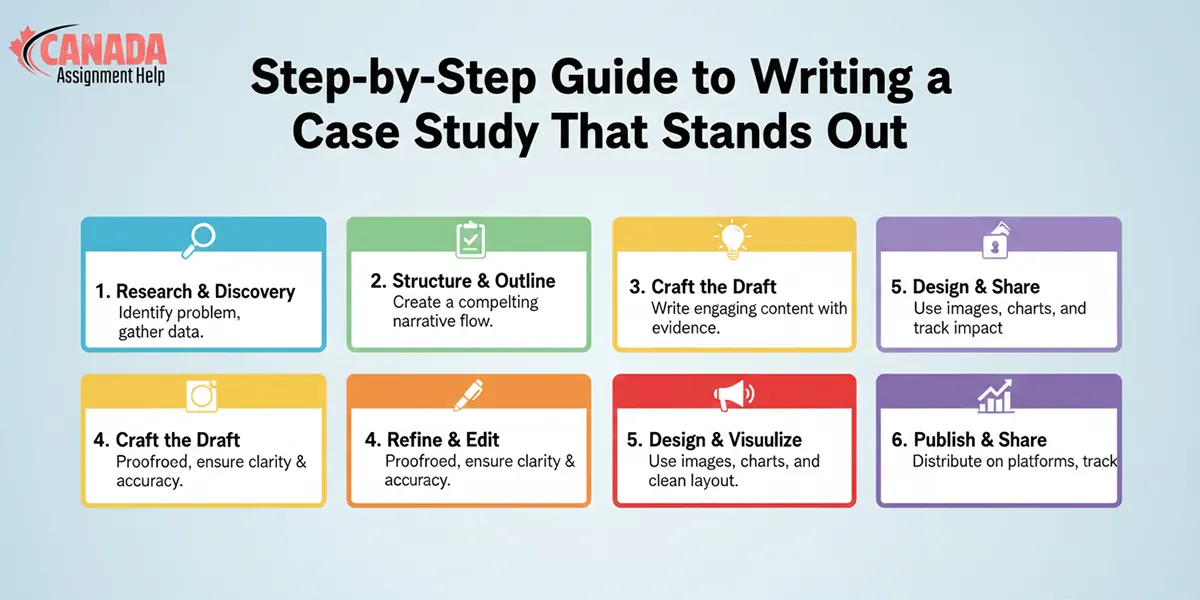Canada is now considered one of the most preferred destinations for Indian students. Each year, thousands of Indian students aspire to study in Canada because of its world-class universities, affordable tuition fees compared to the US/UK, and excellent post-study work and immigration opportunities.
So, if you are an Indian student aiming to study in Canada in 2025-2026, this blog is for you. Learn everything you need to know and the basics, from visa requirements to costs and scholarships, to the best opportunities, etc.
Why choose Canada for higher studies?
Benefits of studying in Canada
If you choose to study in Canada, then just know that multiple benefits make it stand out among the global education destinations.
1. Affordable tuition fees: tuition fees at Canadian universities and colleges are much less as compared to those tuition fees in the UK, US, and Australia. Moreover, the education is affordable yet of world-class quality. In undergraduate programs as well as the postgraduate program, Canada provides affordable and top-quality learning opportunities.
2. Practical-oriented programs: Canadian universities are popular for offering practical-oriented programs that align with industry needs. Many Canadian universities provide practical learning opportunities. In this way, the Canadian students are equipped with practical skills that are demanded by employers.
3. Pathway to permanent residency: this is the main thing that impresses Indian students, that just after one year of work, they can apply for a permit. So studying in Canada can also offer you the opportunity to live there permanently.
4. Various courses: Canada has 150+ universities offering various courses. So the Canadian universities offer diverse learning opportunities that can align with your needs.
5. Highly qualified faculty: Canadian universities have faculties that are highly qualified and are experts in their particular fields.
6. Globally recognized degrees: after studying at a Canadian university, you will receive a globally recognized degree from a top-ranked institution.
7. safe and student-friendly environment: Canada is considered one of the safest countries across the globe. Moreover, it provides a peaceful environment for all international students. This is why international students choose to study in Canada
8. Post-study work permit: You can access a work permit after study in Canada , so, being a Canadian graduate, you can study and work in Canada for up to 5 years.
9. Multicultural environment: Canada has a multicultural environment, due to which it is easy for Indian students to adjust.
Top 10 reasons to study in Canada
- Quality education system.
- While studying, you can also work flexibly.
- After graduation, there are high chances of PR.
- In Canada, diverse courses are offered across many disciplines.
- Education is affordable compared to the US and the UK.
- Multicultural exposure.
- There are scholarships to study in Canada available.
- There are strong Indian communities across Canadian cities,
- Global career opportunities
- Industry-centric programs
Why study in Canada and not in India?
We know that education in India is affordable; however, it doesn't match the global exposure and international career opportunities.
- It gives you global exposure, and you receive internationally recognized degrees.
- You’ll get better job opportunities abroad.
- Canada has specialized courses in medicine, nursing, AI, data science, and business.
- You will get high salary packages after graduation,
- An opportunity to settle abroad permanently.
Canada Student Visa Rules 2025 for Indian Students
What visa is required to study in Canada? (Study Permit explained).
To study in Canada from India, you need to have a study permit. This study permit acts as the official student visa. Also, the study permit allows you to stay in Canada for the duration of your course.
Step-by-step visa application process.
- First, get an admission letter from a designated learning institution.
- Then, prepare the documents such as photographs, a passport, an admission letter, proof of funds, SOP, and biometrics.
- You have to apply online via the immigration, Refugees and Citizenship Canada (IRCC) website.
- Then, pay the visa application fee.
- Next, provide the medical examination certificate and biometrics.
- At last, receive your study permit approval.
Note: if you want to know how to extend study permit in Canada, you must apply before the expiry of your current permit with the updated documents
Is IELTS required to study in Canada?
Most of the Canadian universities require IELTS, TOEFL, OR PTE scores to prove English proficiency,
However, many universities now allow study in Canada without IELTS by asking for some alternatives, like proof of previous English language education. Or taking a university’s own language assessment.
Can someone sponsor me to study in Canada?
The answer is yes. Your parents, guardians, or close relatives can financially sponsor your studies in Canada. Moreover, you have to provide proof of funds through bank statements, scholarships, or an education loan for study in Canada.
How to extend study permit in Canada?
- First, you have to apply online before your permit expiry date.
- Then, you have to submit the updated documents. Including the proof of continued enrollment.
- Later, provide evidence of sufficient funds.
- Then, wait for the IRCC approval and also maintain a valid status.
Cost of Studying in Canada for Indian Students
Tuition fees:
- The cost of Undergraduate programs is around CAD: 15000-25000 per year.
- The postgraduate/master's program costs around CAD 20000-35000 per year.
- The MBA program costs around CAD 30,000-50,000 per year.
- The Medical and healthcare courses cost around CAD 35000 -60000 per year.
Living expenses:
- Toronto & Vancouver: CAD 15000 -20000 annually.
- Smaller cities: CAD 10000-15000 annually.
How much cost to study in Canada?
It totally depends on your program and the city of your choice. But the total cost of studying in Canada in Indian rupees is between INR 20-42 lakhs for the full degree.
Scholarships to study in Canada (Vanier, Trudeau, university-specific).
- Vanier Canada graduate scholarships. ( PhD students)
- Trudeau Foundation Scholarship.
- Ontario Graduate Scholarship. (OGS)
- University-specific scholarships.(university of toronto,Mc gill ,UBC (University of British Columbia) and waterloo)
-Wondering how to get a scholarship for study in Canada? You need to apply early, maintain good academic records, and meet the eligibility criteria.
Best Courses for Indian Students in Canada
Medical and healthcare
- MBBS pathway programs.
- Study nursing in Canada (BSc/MSc Nursing)
- Pharmacy and biotechnology
Can international students study nursing in Canada? Yes, with English proficiency and prerequisites.
How long does it take to study nursing in Canada? 2-4 years, depending on the level.
Business and management
- Bba and mba in finance and marketing.
- International business.
- Accounting and ACCA programs.
STEM and sciences
- Computer science, IT, DATA SCIENCE, AI
- Architecture, civil, and mechanical engineering.
- Microbiology and environmental science.
Can international students study law in Canada? Yes, through LLB programs.
Creative and design
- Graphic design and media studies.
- Architecture and interior design.
Which courses have the best job opportunities for Indian students?
Basically, it depends on your career goals, but nursing, computer science, and business analytics currently have the best job opportunities.
How to Apply for Higher Studies in Canada (Step-by-Step)
- Choose a course and university: the first step in applying for higher studies in Canada is selecting a DLI-approved institution.
- Apply online: then, submit the required documents and pay the application fees.
- Submit SOP and LORs: statement of purpose and recommendation letters are important.
- Meet English proficiency requirements: IELTS/TOEFL/PTE
- Receive the offer letter: receive your letter from the college or university.
- Apply for a study permit through IRCC.
- Arrange finances: give the proof of funds, scholarships, and loans.
- Plan your accommodation and travel: book your flights and housing
However, for the PG applications, you have to apply directly to the universities. Moreover, the question is GRE required to study in Canada? The answer is not always.
What are the required documents?
The required documents are a passport, academic transcripts, English test scores, SOP, LOR, and financial proof, admission letter, and documents required for study permit extension in Canada. (if continuing studies)
Note: If you are applying after school, you can study in Canada after 12th by directly applying to undergraduate programs.
Deadlines and intakes
-
Fall intake(September): major intake.
-
Winter intake(January): smaller.
-
Summer intake(May)-limited courses.
Work & Life for Indian Students in Canada
Can I work and study in Canada?
Yes, you can work and study in Canada with a valid study permit. You can:
-
Work 20 hours per week during the semesters.
-
Work full-time during holidays.
-
Join co-op and internship programmes.
-
You can also seek assistance from services like Canada assignment help for managing coursework and part-time jobs.
Work permit after studying in Canada
After completing your degree, you can apply for a post-graduate work permit valid for up to 3 years.
Where to study law in Canada / where to study ACCA in Canada (niche searches).
Law: University of Toronto, McGill University, University of British Columbia.
ACCA: Seneca college, Centennial college, Toronto School of Management.
Can I apply for PR while studying in Canada?
While studying, direct PR is not possible. However, students can start applying through Express Entry or provincial nominee programs. Moreover, this can be done once they have Canadian work experience.
How to settle in Canada after studies (Express Entry, PR options).
-
You can apply for PR through Express Entry or PNP.
-
Also, you should gain Canadian work experience to boost PR chances.
Indian communities, cultural festivals, and food availability.
-
There are strong Indian communities in Toronto, Vancouver, and Brampton.
-
Festivals like Diwali and Holi festival are celebrated.
-
Indian students have access to Indian food, cultural events, and festivals.
-
There are support groups and career centres for Indian students.
FAQs – Quick Answers for Indian Students
Is IELTS required to study in Canada?
Most Canadian universities require IELTS in the application process. The Canadian universities in the admission process ask for proof of English proficiency, and for that, IELTS is the most accepted test..However, IELTS is not the only option; some institutions also accept TOEFL, PTE Also, you can apply without IELTS in some of the universities after showing that your previous education was in English. In such a situation, you may have to take a Language program before starting your degree.
Can I study in Canada without IELTS?
It is possible to study in Canada without IELTS. Now, several universities and colleges have made many concessions for international students. For example, they may require proof that you studied in an English medium school, or they might take your internal placement test after your arrival. Also, some universities may require alternative tests such as PTE.just keep in mind that not every university provides such an option, so you must carefully research programs that allow students to study in Canada without IELTS.
How much does it cost for Indian students?
The answer to how much money is required to study in Canada depends on the program and the city. On average, the tuition fees to be a part of an undergraduate program are around CAD-13,000-20,000per year. However, the postgraduate courses cost around 17000-25000 per year. The medicine and MBA programs can be costly, ranging from CAD25000- 400000 annually. Also, the living expenses, like the expenses of food, accommodation, and transport costs around CAD 10,000–15,000 per year. In total, Indian students have to spend between INR 15-25 LAKHS for studying in Canada.
Which is the best course to study in Canada?
Some courses are really popular among Indian students. Among the wide range of courses, health care programs like nursing and pharmacy are in high demand due to the lack of professionals. Other business programs like MBA, accounting, and finance are also in high demand. Furthermore, computer science, artificial intelligence, data science, and engineering are also suitable options for enhancing their career prospects . Such courses not only help students to succeed academically but also professionally.
Can I settle in Canada after completing my studies?
Yes, one of the main reasons Indian students opt for studying in Canada is that they have the possibility of settlement after the completion of their studies. Also, by obtaining a post-graduation work permit, students can gain Canadian work experience. Moreover, this experience matters a lot in immigration programs like Express Entry and Provincial Nominee Programs. This leads the graduates to apply for permanent residency. Moreover, it might not be easy to qualify immediately, but you can transition successfully to PR after a few years of work.
How expensive is studying in Canada?
The average cost is around 15-35 lakhs.
How can I study medicine in Canada?
You can study medicine in Canada through premed.
Is there an age limit to study in Canada?
There is no age limit to study in Canada; however, younger applicants find it easier to obtain approval.
Do I need a study permit to study in Canada?
Yes, for courses over 6 months.
Conclusion
As an Indian student, choosing to study in Canada is not just a new academic journey but a life-changing experience. If you are a student who wants to work hard, gain a quality education, and then have the best future career opportunities, then studying in Canada is the smartest decision you can make.
It provides Globally recognized degrees, affordable tuition compared to the US/UK, and offers a lot of other benefits. Canada has become one of the best destinations for higher studies.
Moreover, Canada offers flexible admission pathways so you can also study in Canada without IELTS; therefore, it is also easy for students belonging to different backgrounds to apply. Also, the availability of scholarships, part-time work opportunities, and the post-graduation work permit ensures that students can manage their expenses while pursuing a career.
Also, Canada provides a safe and multicultural environment where Indian students can easily adjust and do not feel isolated.
Also, as you plan to study in Canada, another appealing thing is the chance to convert from a student to a permanent resident. Many graduates settle in Canada after completion of their studies.
Also, choosing Canada for your further studies means investing in a future of growth, success, stability, and new opportunities. Moreover, with the right guidance, studying in Canada can be a stepping stone towards a bright future.
“Planning your Canadian education journey? Explore our detailed guides on scholarships, visas, and courses at Canadaassignmenthelp.ca.”










